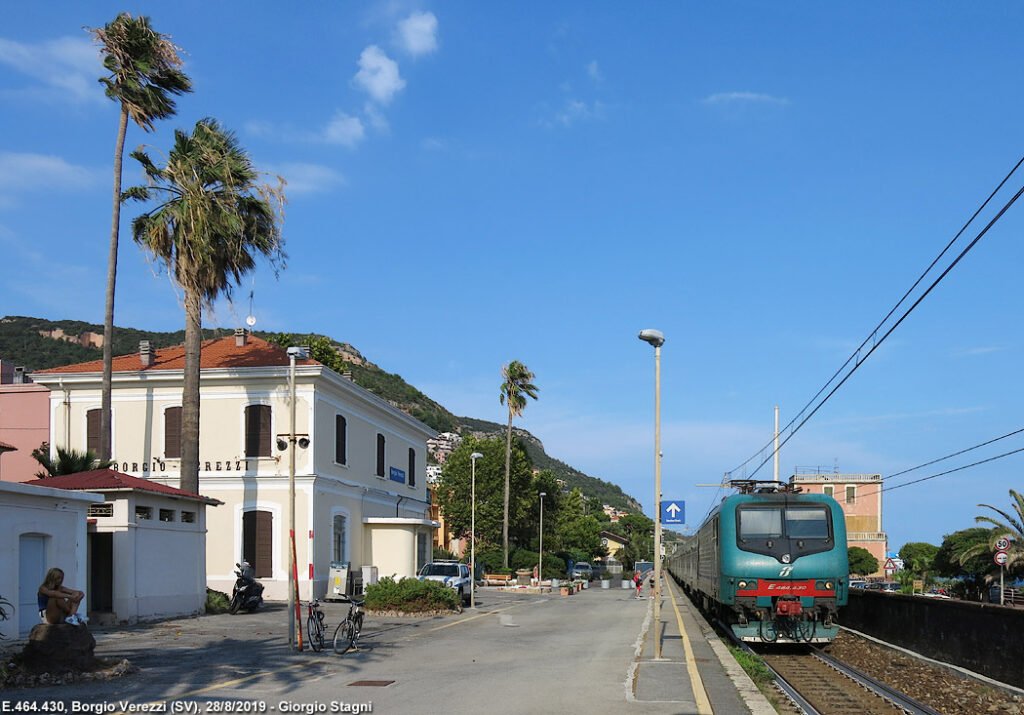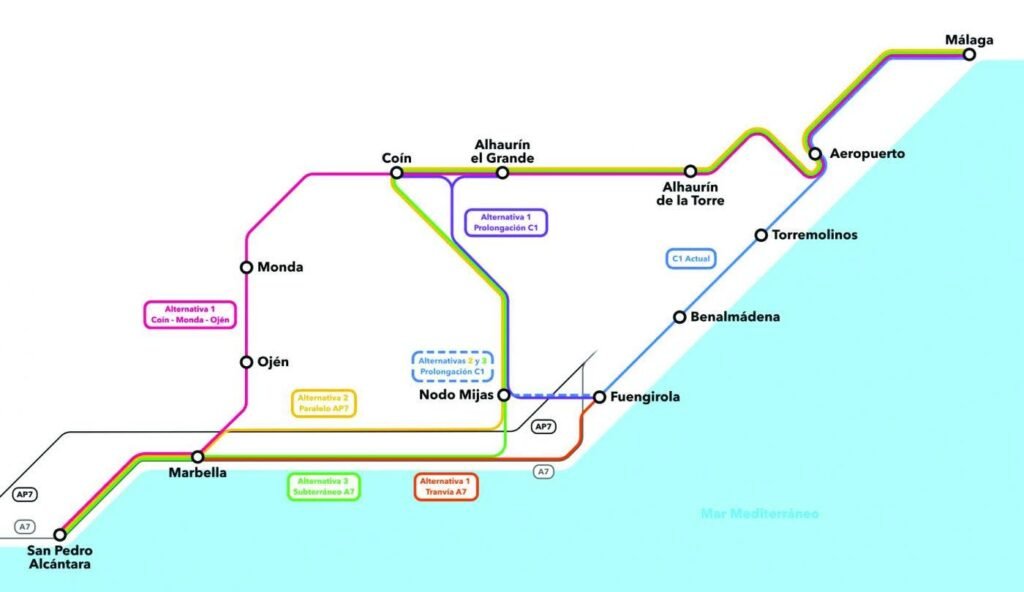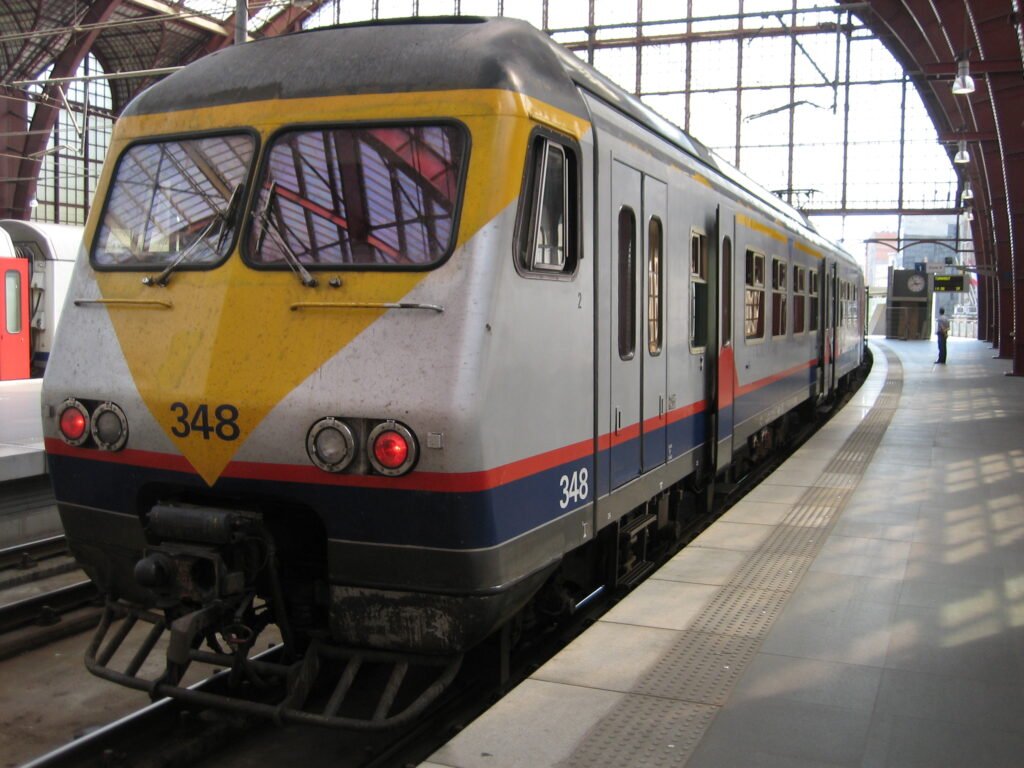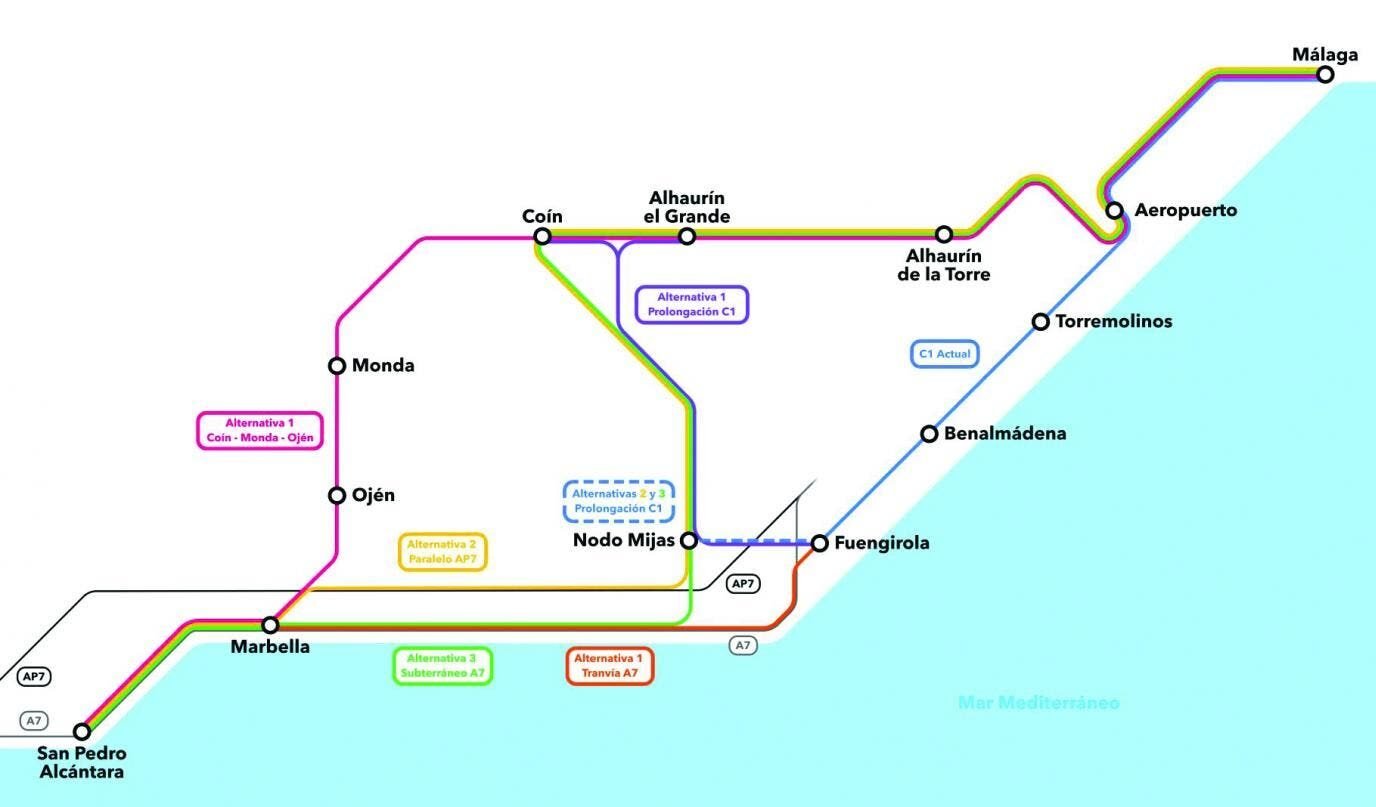Proposed Malaga-Marbella Railway Train Line by Local Engineers
Local engineers have put forth plans for a much-anticipated train line between Malaga and Marbella. The Platform for Malaga Infrastructure, a group of engineers committed to enhancing the province’s infrastructure, has unveiled a report outlining the train line plans.
Third ‘Cercanias’ Line to Connect Several Towns
The proposal includes a third ‘cercanias’ line that would connect several towns including Churriana, Alhaurin el Grande, Alhaurin de la Torre, Coin, Ojen, Marbella and San Pedro Alcantara. Jesus Martin, one of the engineers behind the plans, stated that the proposal was a response to Malaga’s lack of rail travel compared to similar cities like Bilbao, Valencia and Alicante.

Addressing Transport Connection Issues
Martin acknowledged the large number of people living in towns outside the capital with limited transport connections. The report also highlighted the construction challenges due to the rocky coastal terrain and the lack of construction space.
Proposed New Line, Not an Extension
The plans do not propose an extension of the existing C1 cercanias to Fuengirola, but a completely new line. Currently, the journey to Fuengirola takes 45 minutes. If the line was extended to Marbella, it would take around the same time as driving from Malaga.

Reduced Travel Time with New Line
However, if the new Malaga-Marbella line was constructed, the journey would only take 40 minutes. In addition to the main line, there will also be an alternate tram route from Coin to Marbella, passing through Monda and Ojen.
Priority Areas and Essential Locations
According to the planners, places that will benefit most from the plans will be prioritized in this order: Marbella, San Pedro, Alhaurin de la Torre, Las Lagunas (Mijas), Coin, and Alhaurin el Grande. They also highlighted two ‘essential’ locations to include: el Hospital Costa del Sol and Marbella bus station.

High Cost, Long Term Solutions
In an interview with Viva Malaga, Martin highlighted the plans were ‘long term’, ‘high cost’ solutions with the top two options costing up to €2.6 billion. The options, with the least investment but highest social impact, could benefit up to 300,000 people.
Completion Timeline and Next Steps
However, the plans could take up to 10 years to complete, according to Martin’s ‘conservative guess’. Now, the plans will be sent to various associations in order to gain social support and signatures backing the proposal. It is hoped that this will put pressure on the Junta, local councils and the Ministry of Transport to seriously consider the plans.



